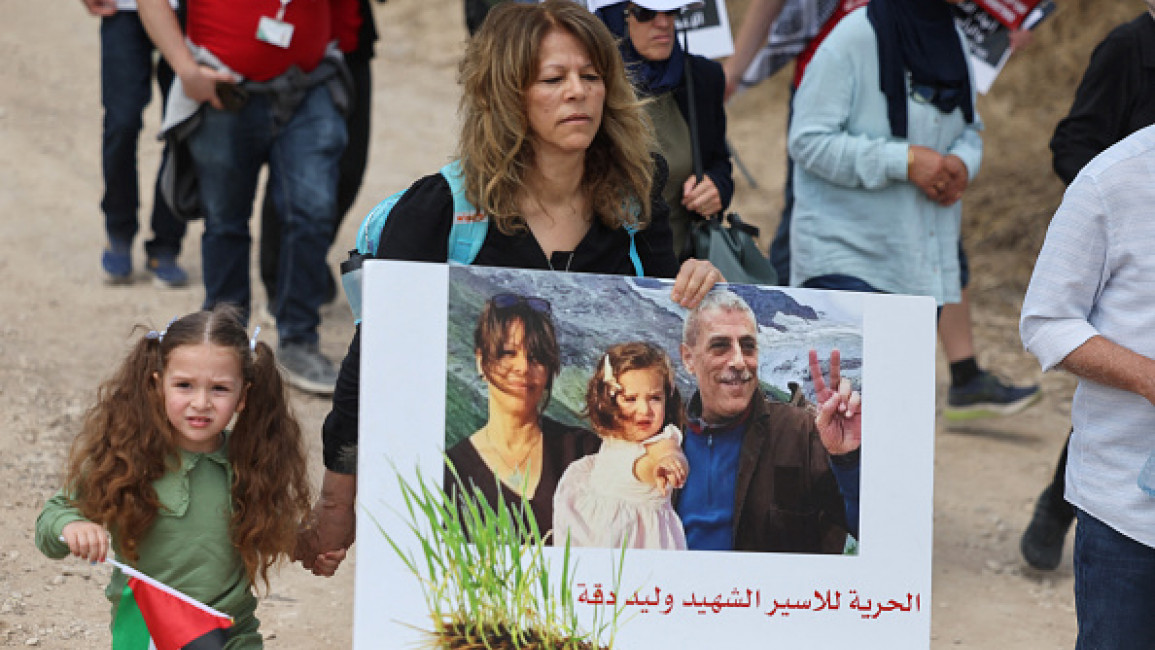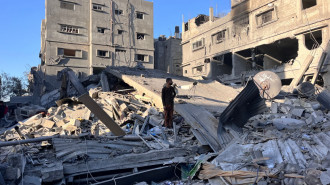Israeli court rules that body of Walid Daqqa can be held as bargaining chip in hostage negotiations
Israel's highest court on Monday ruled authorities have the right to indefinitely hold the body of Palestinian novelist Walid Daqqa, rejecting a petition filed by his family to secure the return of his remains for a dignified burial.
Daqqa, a Palestinian citizen of Israel, died from cancer while still in custody in April.
He had spent 38 years in detention for the kidnapping and murder of an Israeli soldier in 1984, with Israel accusing him of being a member of the Popular Front for the Liberation of Palestine (PFLP).
During his time in prison, Daqqa authored several highly regarded works of Arabic literature, including the 2018 children’s fable The Tale of the Secrets of the Oil.
Following his cancer diagnosis, there were widespread calls for him to be released early, with only two years left on his sentence. However, Israel refused. Additionally, Amnesty International visited him a few weeks before his death and reported that he had been subject to torture while in an already weakened state.
After his death aged 62, his remains were held by Israeli authorities under powers enshrined in the country’s controversial Nation-State Law, which deems that the state can hold the body of a "terrorist" to be used in negotiations for Israeli captives and the bodies of Israeli captives held in Gaza by Hamas.
However, the court’s ruling sets a new precedent in that it rules that even the bodies of citizens of Israel, such as Daqqa, can be held by authorities as bargaining chips.
"The military command has the authority to order the holding of the bodies of terrorists for the purposes of negotiations, including the bodies of terrorists who are citizens of Israel," the court said in a statement.
The court's decision drew criticism from Adalah, an advocacy group for Arab minority rights in Israel, which had filed the appeal.
"The Israeli Supreme Court has sanctioned the government's brutal policy of withholding the bodies of Palestinians, including citizens of Israel, purely based on security assessments of their potential value to be exploited as bargaining chips in negotiations for Jewish Israeli hostages," the group said in a statement.
Israel has been holding the bodies of dozens of Palestinians for years, including the remains of members of armed groups killed during clashes that caused Israeli casualties.
Adalah further argues that the ruling "embodies a deeply racist ideology" that weighs "the right of the deceased and their families to a dignified burial against the so-called interests of the Jewish people as dictated by the Jewish Nation-State Law, while unmistakably favoring the latter."
Of the 251 hostages seized by militants, 97 are still held in Gaza, including 33 the Israeli military says are dead.
There are currently more than 9,600 Palestinian prisoners in Israel, according to civil society organisations monitoring prisons, over 3000 of which are held without charge under administrative detention.







 Follow the Middle East's top stories in English at The New Arab on Google News
Follow the Middle East's top stories in English at The New Arab on Google News

![Lebanon after strikes [Getty]](/sites/default/files/styles/image_330x185/public/2184409977.jpeg?h=a5f2f23a&itok=7wpfQMyI)
![G20 Brazil [Getty]](/sites/default/files/styles/image_330x185/public/2184389194.jpeg?h=a5f2f23a&itok=t1DchCMY)